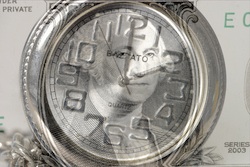Training for brain-based education and literacy
in order to meet new cultural requirements in a way that ensures benefits for everyone,
from the highly gifted unto those in need of support.
At the modules you find certified instructors per country.
In Germany all modules are offerd in English, French and German, also as residential courses.
Each module concludes by test and internship and with the European ECVET certificate.
3 MODULES
Please, tell us tell us about your experiences and what you are looking for.
The 3 qualifications ca be attained at different levels:
QUALIFICATIONS:
The 3 qualifications ca be attained at different levels:
using storytelling to enable children to learn letters in real word terms rather than as abstract shapes.
- a clear understanding of the neurological processes of learning and retaining information.
- the ability to apply this knowledge to literacy tuition.
This certification enables the graduate
- to provide methodical advice in terms of brain-based education.
- to design lessons in a brain-based way.
The training includes:

Biography of the Brain

The day schedule of the brain
What matters by the end of the day. The 'night shift' of the brain.

The graduate has a clear understanding of the physiological impact artistic means have on the learning functions of the brain.
- The letters are spontaneously internalized as events of these developmental steps.
- Useful sentences remain in the ear as tools for social competence.
- Speech is further developed in role-play and musical activities.
- Creating images together teaches reflection and interaction within the group.
- The hand feels confidence from the first stroke by the momentum of the new “In-Place Writing Exercises”.
- Inspiration for creative writing springs from the joy for the sound of speech, by which initially we learned to speak.
Biography of the Brain

What brain cells need at which age. The so called critical Phases.
What the brain can and can not do. Neuroplasticity.
Different methodological needs of boys and girls. Body control and intellectual development.
The day schedule of the brain

What matters by the end of the day. The 'night shift' of the brain.
IT Technics in the Brain

Trainees complete the work experience with a presentation.
We offer opportunities for shorter or longer internships in Germany and in our partner countries.
Chun cleachtadh a dhéanamh ar do chuid scileanna, is féidir linn deiseanna a chur ar fáil duit ar chúrsaí oiliúna gearra nó fada, sa bhaile agus thar lear. Déan teagmháil linn.
Ar mhaith leat cuid dár gcuid tuairiscí ar na cúrsaí oiliúna a léamh? Léigh leat!
Internships can also be combined with stays abroad.
______________________
*"Neurodidactics" is a new term of the 21st century for educational approaches based on neuroscientific findings.
It is not to confuse with the term "neurolinguistics", the origin of which is in the 19th century and rooted in psychology.







